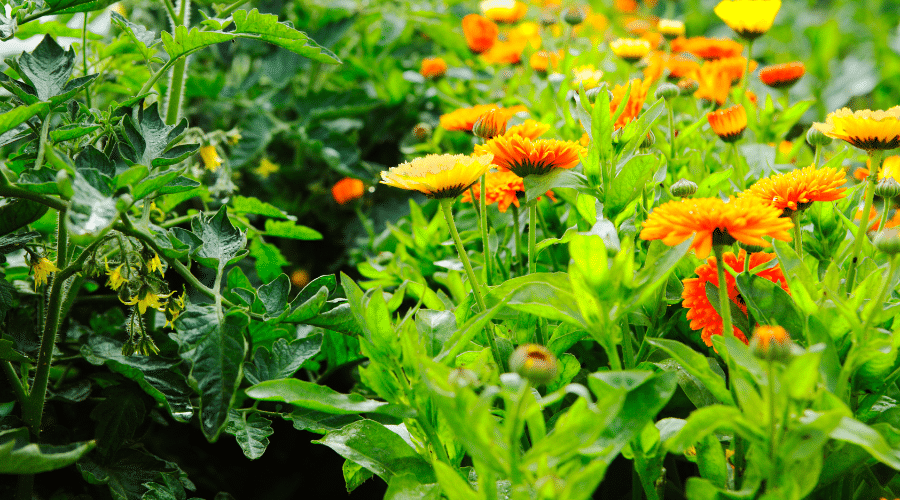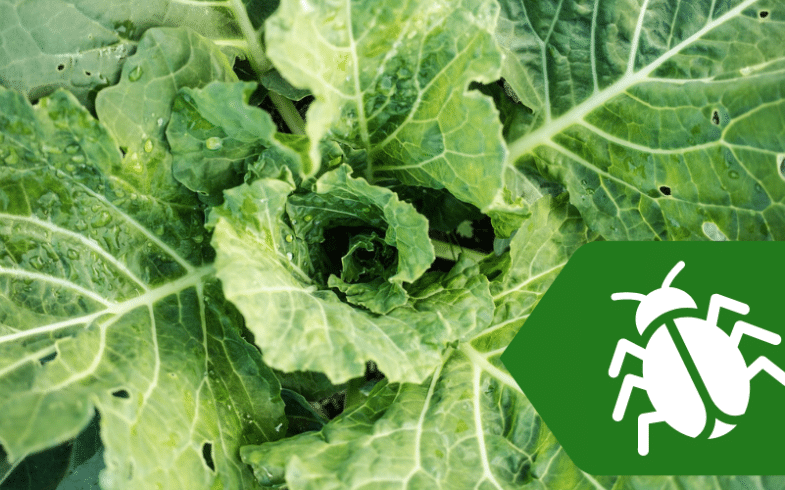Natural Pest Control Tips For Greenhouses
With many of us being gardeners at home, we all know the frustration of pests attacking our precious plants, especially when we're trying to grow our own fruit and vegetables.
Garden pests, especially those in the greenhouse can cause extensive damage to our crops, affecting plant growth and ultimately impacting our harvest. While pesticides may seem like an easy solution to this problem, they come with a host of negative effects on our environment and health. Fortunately, there are natural ways to deter garden pests without using harmful chemicals.
By using a combination of techniques and methods, you can create a pest-resistant garden that is free from harmful chemicals and safe for you, your family, and the environment. Companion planting, physical barriers, natural pesticides, handpicking, mulching, beneficial insects, and crop rotation are all effective tools in your pest control arsenal. By choosing the right methods for your garden and applying them consistently, you can enjoy a bountiful harvest of delicious, healthy produce. In this article, we'll explore some of these more natural solutions.
Popular Greenhouse Pests
Before we delve into the natural remedies, it's essential to identify the common pests that can wreak havoc in our greenhouses and gardens. Some of the most common pests include:
- Aphids: These tiny insects suck sap from plants, causing leaves to curl, yellow, and eventually die.
- Slugs and snails: These slimy creatures can consume entire seedlings overnight.
- Caterpillars: These larvae of moths and butterflies feed on leaves, causing extensive damage to plants.
- Whiteflies: These small, white insects damage plants by sucking sap and transmitting viruses.
- Spider mites: These tiny arachnids feed on the undersides of leaves, causing leaves to turn yellow and drop.
Natural Solutions For Greenhouses Pests
Now that we know some of the common garden pests, let's explore natural ways to deter them without using harmful pesticides.
Companion Planting
Planting certain plants together can help to deter pests. For example, planting marigolds alongside vegetables such as tomatoes and beans can deter aphids and other pests. Similarly, planting herbs like mint and basil can deter flies and mosquitoes.
Physical Barriers
Creating physical barriers around plants can prevent pests from attacking them. For example, using copper tape around pots and raised beds can deter slugs and snails.
Neem Oil
Neem oil is a natural pesticide derived from the seeds of the neem tree. It is effective against a wide range of pests, including aphids, whiteflies, and caterpillars. Neem oil works by disrupting the life cycle of pests and can be applied as a spray.
Garlic Spray
Garlic spray is a natural pesticide that can deter a wide range of pests, including aphids, spider mites, and caterpillars. To make garlic spray, simply blend garlic cloves with water and strain the mixture. The resulting liquid can be sprayed onto plants.
Diatomaceous Earth
Diatomaceous earth is a natural powder made from the fossilized remains of tiny aquatic organisms. It is effective against pests such as slugs, snails, and ants. Diatomaceous earth works by dehydrating the pests, causing them to die.
Handpicking
While it may seem like a tedious task, handpicking pests can be an effective way to control their populations. Simply check your plants regularly and remove any pests that you find.
Mulching
Mulching around plants and on top of the soil in your pots can help to prevent pests by creating a barrier between the soil and the plant. Mulch also helps to retain moisture in the soil, which can deter pests like spider mites.
Beneficial Insects
Introducing beneficial insects into your greenhouse such as ladybirds and lacewing can help to control pest populations. These insects prey on other pests, preventing them from causing extensive damage to plants.
Crop Rotation
Crop rotation involves planting different crops in the same area each year. This helps to prevent pests from building up in the soil and reduces the likelihood of pest infestations.

In conclusion, growing your own fruit and vegetables in the greenhouse is a rewarding and satisfying experience that allows you to enjoy fresh, nutritious produce while connecting with nature. However, dealing with pests can be a frustrating and challenging task, especially if you want to avoid using pesticides. Fortunately, there are many natural ways to deter pests and promote a healthy, thriving greenhouse.
It's important to remember that pest control is an ongoing process that requires patience, persistence, and dedication. You may not see immediate results, and you may need to experiment with different methods to find what works best for your garden. However, the rewards of a healthy, chemical-free garden are well worth the effort. So by using natural methods, you can reduce your reliance on costly chemicals and create a sustainable, self-sufficient growing space that provides for you and your family.











No comments.